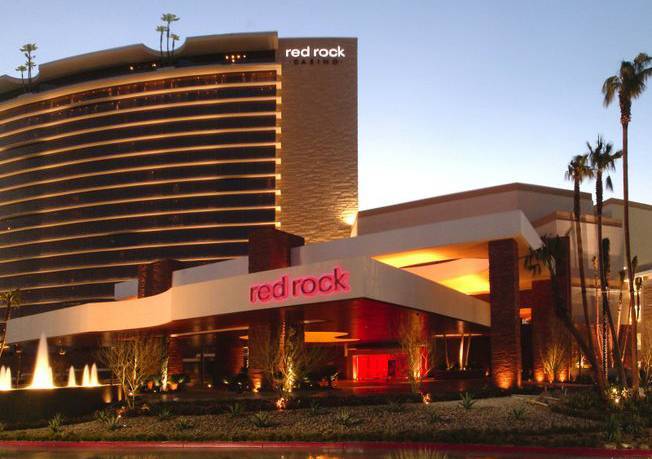More Information
- The public can call 495-3888 with questions from 9 a.m. to 8 p.m. Visit mystation.com for more information.
Station Casinos was once a Wall Street darling, enjoying increasing profits by nailing a business plan that relied on local, repeat customers. And then Station’s fortunes collapsed, hit hard as the recession especially pummeled Las Vegas and locals thought twice about how to spend their discretionary money.
Gamblers further griped that Station’s video poker machines were disbursing lower payouts — evidence of corporate cost-cutting.
Station has been trying to get back in good graces with its customers after having emerged this year from Chapter 11, with car giveaways, revamped restaurants and more employees. The newest tactic: a revamped Boarding Pass loyalty program with bigger perks.
The program is expected to cost the company more money in the form of more and better freebies and comes when many local casinos are staying the course with cost-cutting efforts. Although gambling revenue appears to have stabilized after a precipitous fall the last couple of years, business remains depressed, with many local casinos noticeably empty during the day and picking up at night and on weekends.
“You have to invest in the future,” Station Casinos Chief Operating Officer Kevin Kelley said. “It’s a very competitive environment out there, and guests are focused on value every single day. We don’t want to give them any excuses to go elsewhere.”
The new Boarding Pass program will give gamblers of most casino games three points for every dollar spent instead of one point, allowing them to rack up points faster for free meals and other offerings in the company’s 18 casinos. Station also will give gamblers $1 for every 1,000 points — money customers can take home, with no obligation to spend it in the casino. And the company is lowering the gambling threshold to qualify for upper tiers within the loyalty program — a separate perk with additional rewards for bigger gamblers.
Industry experts call it a bold move to win back the business of customers who may have been tempted by better deals elsewhere.
“They looked at the economic landscape, with a lot of casinos reining in what they’re offering, and decided that now is the best time to strike,” said Anthony Curtis, publisher of the Las Vegas Advisor newsletter. “They’re doing things that I’ve always said companies should do in a downturn.”
After a painful restructuring process, Station needs to win over customers who have been disillusioned by efforts to reduce and cheapen offerings in the recession, Curtis said.
“This is an amazing investment. They’re putting their money where their mouth is ... they’re also competing in a tough economy and they need their bedrock customer.”
Marketing efforts have helped grow the company’s revenue and operating income in recent months, executives say. Through March, Station’s promotional expenses rose 9 percent, an increase of $1.6 million, compared with the same period a year ago.
Station has improved its ability to court customers after reducing corporate debt by $4 billion in the bankruptcy process to about $2.2 billion as of June 30.
About two years ago and around the time Station sought bankruptcy protection, executives began an effort to improve the loyalty program, which is Station’s chief marketing tool and one that competes with many others around town. In focus groups last year, customers said they wanted more for their money, Kelley said.
Several months ago, Station executives rolled out freebies and discounts for any and all potential customers, not just local gamblers — from 2-for-1 dinners to free hotel stays. The company lowered prices for casino buffets to at or below cost and restored favorable payouts on video poker machines. Station has hired more than 1,000 employees this year, including at least 500 full-time workers, in an effort to improve customer service.
Also this year, Station took back ownership of casino cafes from chain restaurants and introduced a series of company-owned Italian restaurants with oversized portions and reasonable prices. Casinos commonly outsource restaurants to reduce expenses and risks, although such moves can also remove the casino’s control over quality and service.
Customers preferred the company-owned cafes, and like to know what to expect when returning to the casino for a meal, Station spokeswoman Lori Nelson said.
A major ad campaign called “We Love Locals” kicked off in February, becoming a regular feature on local TV stations and billboards around town.
In another expensive promotion, Station gave away 220 cars in February to gamblers — a return to the old-fashioned marketing tactics for which Station Casinos founder Frank Fertitta Jr. was known.
Station expects to spend even more money advertising its revamped loyalty card, Kelley said. Like the company’s “I Love Locals” ads, Boarding Pass commercials and print ads will feature rank-and-file Station employees. About 3,500 of Station’s 13,000-plus workforce auditioned, “American Idol” style, to appear in the spots, with audition participants winning cash and cars as prizes.
“It’s been great for morale,” Nelson said. “Everyone feels very emotionally invested in wanting to make this a success.”
By helping improve an image tarnished in bankruptcy, the company’s marketing efforts are aimed at employees as much as customers, said Roger Gros, publisher of Global Gaming Business magazine.
“The market is really soft now and with the negative outlook the company has had last few years, I think they’re trying to turn that around,” Gros said. “Employees want to see that kind of commitment.”
Station executives aren’t expecting a profit windfall after spending a “truckload” on marketing efforts, Kelley said.
“We’re bullish on the long term growth of the city and the recovery, but it’s a slow process,” he said. “Where you used to get incremental growth of 7 to 8 percent we’re going to be happy for 1, 2 or 3 percent (gaming) growth over the next few years.”
